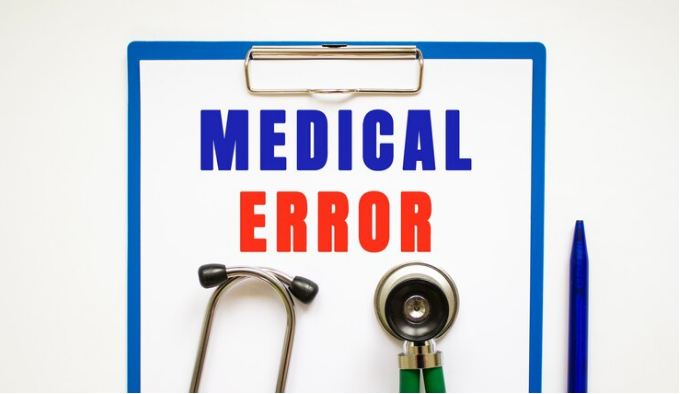What Is Medical Communications? Everything You need to Know

Medical communications are created to raise awareness, encourage conversations, and promote the adoption of new medical devices, drugs, treatments, and Healthcare brands.
Targeted at healthcare professionals, such as doctors, nurses, pharmacists, and patients , as well as buyers and stakeholders, it plays an important role in Healthcare marketing.
This field is important not only for medical professionals but also for decision-makers, including those in patient advocacy groups, academic communities, and industry-related media.
Table of Contents
How Big Is The Medical Communications Industry?
The global clinical communication and collaboration market was valued at $2.15 billion in 2022, and it is poised for significant growth, with an expected compound annual growth rate (CAGR) of 18.1% from 2023 to 2030.
This growth is largely driven by the ongoing digital transformation in healthcare, which has accelerated in recent years due to the impact of the COVID-19 pandemic.
The pandemic has led to a marked shift towards digital communication within the medical field. A notable 61% of physicians have observed a decline in in-person meetings, reflecting the growing reliance on digital solutions.
This shift is part of a broader trend towards more efficient and accessible healthcare communication, which includes several key developments:
- Patient Portals: These online platforms allow patients to access their health records, schedule appointments, and communicate directly with healthcare providers. Patient portals empower individuals to take a more active role in their healthcare, improving the overall patient experience and enhancing the efficiency of care delivery.
- Telehealth: Telehealth has become increasingly popular, enabling patients to consult with doctors or other healthcare providers from remote locations via video conferencing. This trend has been particularly important during the pandemic, allowing for continued care without the need for in-person visits, thereby reducing the risk of infection and making healthcare more accessible to those in remote or underserved areas.
- Interprofessional Communication: Improved communication between healthcare professionals is crucial for delivering coordinated care. The sharing of patient information, treatment plans, and recommendations among different healthcare providers ensures that patients receive comprehensive and consistent care, reducing the likelihood of errors and improving outcomes.
These trends highlight the importance of digital tools and platforms in the ongoing evolution of healthcare, making it more connected, efficient, and patient-centered.
As the market continues to grow, these innovations will likely become even more integral to the way healthcare is delivered and managed.
Sources; Grandviewresearch Healthcaredive healthit.gov CDC
What services do MedComms agencies provide?
A medical communications agency plays a role in helping pharmaceutical companies bring new or relaunched brands to market.
These agencies focus on raising awareness and ensuring that the brand’s message reaches the right audience through a carefully selected mix of channels.
Here’s a closer look at how these agencies operate and the strategies they employ:
- Multi-Channel Approach
Medical communications agencies use a broad array of channels to promote pharmaceutical brands. This typically includes:
- Digital Platforms: Websites, online videos, and social media campaigns are often central to a brand’s digital presence. Content marketing strategies, including blog posts and articles, help establish authority and engage the target audience.
- Print Media: Brochures, direct mail, and other printed materials continue to be valuable, especially in reaching healthcare professionals who prefer traditional methods of communication.
- Broadcast Channels: Television and radio spots can reach a wider audience and are particularly effective for broad public awareness campaigns.
- Live Events and Conferences: These provide opportunities for face-to-face interaction, where brands can engage directly with healthcare professionals, potential partners, and key stakeholders.
- Press Campaigns and PR: Press releases and public relations efforts help shape the brand’s image and manage its public perception.
- Email Marketing: Targeted email campaigns, often managed through specialized CRM software like Veeva, allow for personalized communication with healthcare professionals and other stakeholders.
- Tailored Strategies Based on Audience
The selection of channels is not arbitrary; it is driven by a deep understanding of the target audience. Agencies conduct extensive research to determine where the audience is most likely to encounter the brand’s message and be receptive to it. This includes analyzing:
- Audience Behavior: Understanding where the target audience spends time, whether it’s on social media, professional websites, or attending industry events.
- Receptiveness: Identifying the channels through which the audience is most likely to engage with the brand, whether it be digital or traditional media.
- Comprehensive Service Offering
Medical communications agencies are often full-service, handling all aspects of a brand’s communication strategy:
- Event Organization: From planning to execution, agencies manage live events, ensuring that every detail aligns with the brand’s goals.
- Content Creation: Agencies write and design brand literature, such as brochures, articles, and digital content, to communicate the brand’s message effectively.
- Marketing Strategy Development: They craft overarching marketing strategies that integrate all chosen channels, ensuring a consistent and cohesive message.
- Specialized Expertise
While some agencies offer a broad range of services, others specialize in specific areas, such as:
- Medical Publications: Agencies may focus on writing and distributing scientific articles, clinical trial reports, or other medical literature.
- Press and Public Relations: Some agencies excel in managing the public image of a brand, working closely with media outlets to ensure positive coverage.
- Concept Development and Strategic Insights
Beyond just executing marketing plans, medical communications agencies often work with pharmaceutical and other health companies to develop the brand itself:
- Audience Research: This involves understanding the needs, preferences, and pain points of the target audience.
- Competitive Analysis: Agencies analyze competitors to identify gaps in the market or potential areas of differentiation.
- Strategic Insights: By studying the current landscape of a particular illness or condition, agencies help identify new opportunities for the brand to make an impact.
Also read Medical communications vs Medical writing
How to start your career in medcomms?
Starting a career in medical communications (MedComms) can be a rewarding path, combining scientific knowledge with communication skills to help bring medical innovations to the forefront. Here’s a step-by-step guide on how to begin your journey in this field:
Getting Started In the MedComms Industry
Before Venturing into, it’s important to understand what MedComms is all about. This industry involves creating and delivering scientific content that supports the marketing and communication needs of pharmaceutical companies, medical device manufacturers, and healthcare organizations.
The work can range from writing clinical trial reports to developing promotional materials and managing public relations for healthcare brands.
Build a Strong Educational Foundation
Having a relevant educational background is crucial in MedComms. Here are some common pathways:
- Life Sciences Degree: A degree in biology, chemistry, pharmacology, or a related field provides the scientific knowledge necessary for understanding complex medical topics.
- Communications or Journalism Degree: This can be beneficial if you aim to focus more on the writing and media side of MedComms.
- Advanced Degrees: While not always necessary, a Master’s or Ph.D. in a relevant scientific field can be an advantage, especially for roles that require a deep understanding of scientific research.
Develop Key Skills
To succeed in MedComms, certain skills are essential:
- Writing and Editing: Strong writing skills are a must, as you’ll be creating content that needs to be clear, accurate, and engaging. Experience in scientific writing or journalism can be particularly helpful.
- Understanding of Medical and Scientific Concepts: A solid grasp of medical terminology, clinical research, and drug development processes is important.
- Attention to Detail: Accuracy is critical in MedComms, especially when dealing with scientific data and regulatory requirements.
- Project Management: You may be responsible for coordinating multiple projects simultaneously, so organizational and time management skills are key.
- Communication Skills: Being able to communicate complex scientific information in an understandable way to diverse audiences is vital.
Gain Relevant Experience
Experience is invaluable in the MedComms field. Here are some ways to gain it:
- Internships: Seek out internships or entry-level positions at medical communications agencies, pharmaceutical companies, or healthcare organizations. These opportunities will give you hands-on experience and help you build a portfolio of work.
- Freelance Writing: Consider taking on freelance writing assignments in the medical or healthcare fields. This can be a great way to build your portfolio and gain experience working with different types of content.
- Volunteer Work: Volunteering with healthcare organizations or patient advocacy groups can provide experience in creating educational materials and communicating with different audiences.
Network and Build Professional Relationships
Networking is important in any career, and MedComms is no exception:
- Attend Industry Events: Participate in conferences, seminars, and webinars focused on medical communications or related fields. These events are great for learning and meeting industry professionals.
- Join Professional Associations: Consider joining organizations like the European Medical Writers Association (EMWA) or the American Medical Writers Association (AMWA). Membership can provide access to resources, training, and networking opportunities.
- Connect on LinkedIn: Use LinkedIn to connect with professionals in the MedComms industry. Engage with their content, join relevant groups, and stay updated on industry trends.
Consider Further Training or Certification
While not always required, additional training or certification can enhance your credentials:
- Medical Writing Courses: Several organizations offer specialized training in medical writing, which can help you develop your skills and knowledge.
- Regulatory Writing Certification: For those interested in regulatory writing, certifications like those offered by AMWA can be beneficial.
Apply for Entry-Level Positions
Once you’ve built a solid foundation, start applying for entry-level positions in MedComms:
- Medical Writer: As a medical writer, you’ll create content such as research summaries, clinical trial reports, and educational materials.
- Account Executive: In this role, you’ll manage client relationships, coordinate projects, and ensure that deliverables meet client expectations.
- Editorial Assistant: This role involves supporting the editorial team with tasks such as proofreading, fact-checking, and coordinating the publication process.
Keep Learning and Advancing
The MedComms field is constantly evolving, so it’s important to stay updated on industry trends and continue developing your skills:
- Continuous Education: Keep up with the latest research, attend workshops, and take advantage of professional development opportunities.
- Seek Feedback: Regularly seek feedback on your work from colleagues and mentors to identify areas for improvement.
- Aim for Specialization: As you gain experience, consider specializing in a particular area, such as regulatory writing, medical journalism, or health economics.
What skills help you stand out in a MedComms role?
Starting a career in medical communications (MedComms) can be highly competitive, especially since the field requires a unique blend of scientific knowledge and communication skills. Here’s a closer look at what employers typically look for and how you can stand out:
Educational Background
- For Writers: Employers often seek candidates with advanced degrees like an MD or PhD in life sciences or a related medical field. This is because writing about complex medical topics requires deep knowledge and understanding. However, it’s not impossible to land a writing job without a PhD.
If you have a Bachelor’s degree, gaining work experience in publishing or the pharmaceutical industry can strengthen your application. Experience is crucial, especially when competing with those who have doctorates or have published medical research.
- For Account Managers: A Bachelor’s degree in science (BSc) is usually the minimum requirement. This role doesn’t require as much specialized scientific knowledge as writing, but a solid understanding of the field is still necessary.
Gaining Experience
- Entry-Level Positions: Starting in an entry-level role, like an account executive, can be an excellent way to get into a good agency. Once you’re in, it’s often easier to move into your preferred role, such as medical writing. This approach allows you to learn the ropes and make valuable connections within the company.
- Work Experience: Doing internships or gaining work experience in related fields, such as publishing or pharmaceuticals, can give you an edge. It shows employers that you’re serious about the field and have a practical understanding of the industry.
Essential Skills
- Writing and Communication: Enjoying writing and being able to clearly and concisely communicate complex medical information are crucial skills. You’ll often need to listen closely to clients or medical experts and translate their knowledge into accessible content.
- Research and Detail-Oriented: Strong research skills and attention to detail are essential. You’ll need to ensure that all content is accurate and well-supported by scientific data. Understanding medical statistics is also important, as you’ll frequently work with data that needs to be interpreted and presented clearly.
- Presentation Skills: Being able to present your ideas effectively is important. Whether you’re pitching a campaign or explaining a concept to a client, strong presentation skills will help you make a convincing case.
- Project Management: In MedComms, you’ll often juggle multiple projects at once. Being organized, managing your time well, and keeping track of deadlines are key to success.
- Creativity: Thinking creatively and finding new ways to communicate about existing treatments or products can help your work stand out. Creative solutions are often what make a campaign successful.
- Marketing Knowledge: Knowing the basics of marketing—how to capture an audience’s attention and persuade them—is important. This includes knowing the right language and frameworks to use in your campaigns.
Networking and Mentoring
- Building Relationships: Networking is vital in MedComms. People are more likely to work with someone they know and trust. Attending conferences, industry events, and connecting with professionals on platforms like LinkedIn can open up opportunities.
- Mentoring: If you have experience in the industry, being willing to mentor others can make you a valuable team member. Companies appreciate those who help train and guide newer employees, and it can also strengthen your leadership skills.
Digital and Technical Skills
- Staying Updated: As the industry becomes more digital, being familiar with online platforms and digital marketing strategies is increasingly important. Having strong digital skills, in addition to your medical knowledge and communication abilities, can set you apart from other candidates.
Breaking into the medical communications field requires a combination of education, experience, and skills. While the competition is strong, there are many ways to stand out. Gaining relevant experience, building a broad skill set, and being open to starting in an entry-level position can help you build a successful career in MedComms.
Staying adaptable, continuously learning, and networking are also key to advancing in this dynamic and rewarding field.
Conclusion
A medical communications agency is an essential partner for pharmaceutical companies looking to successfully launch or rebrand products. By leveraging a multi-channel approach, tailoring strategies to the target audience, offering comprehensive services, and providing specialized expertise, these agencies help ensure that a brand’s message is effectively communicated and well-received in the marketplace.



